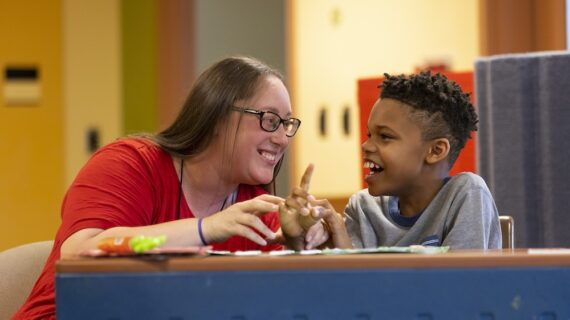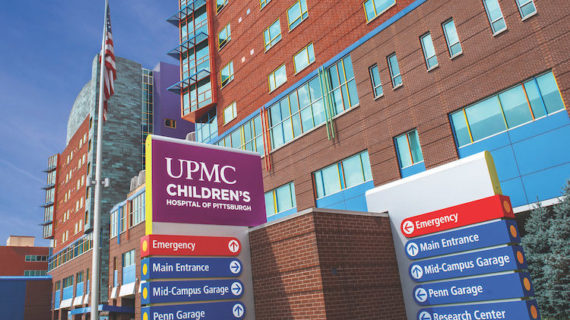
Would the real stigma please stand up?
Photo above by Andrea Tummons via Unsplash.
You should know: I’m not a mental health professional. I am a dad raising my kids here in Pittsburgh. But like so many of us, I’ve dealt with mental health issues and that experience has taught me a bit about how we can help kids navigate their own mental wellbeing.
We humans have dealt with mental health since the first Paleolithic human created the first tool and it broke the first time that person tried to use it. That early inventor probably felt sad from that moment of failure — maybe felt worthless at having let down his or her co-inhabitants. Who knows? I’m speculating. But luckily for us, frustration didn’t stop that entrepreneurial cave-dweller from moving forward.
For far too many generations, though, we did little to help each other move forward.
Mental health got little attention unless people physically showed signs of mental disturbance or seemed likely to harm themselves or others. Most people who needed help were ignored. At one time, people (mostly women) were sent to asylums or hospitals for “having the vapors” and were written off as “crazy,” rather than getting support for real challenges they were facing.
They were shoved aside, not taken seriously or mistreated under the guise of being “treated.” So it’s no wonder that over the centuries, the idea of mental health grew into something negative — a hush-hush personal problem.
But it’s a universal problem. It’s something everyone deals with all the time. Just like our physical health varies from day to day, week to week, our mental health fluctuates, too. And sometimes it needs attention.
Do we support people’s mental health perfectly today? No. But we’re much better equipped and have more knowledge of mental health and how to help our kids and ourselves. And we can keep on improving — eliminating the idea of stigma completely.
Communicating with our kids, and helping them communicate with each other
I can remember being depressed as far back as the age of 12 or so. Not just a day here or there. I was feeling it every day. But I never spoke to mom about the way I felt, and I never told my friends. I never spoke to a doctor or therapist about it. How could they help me? The reasons I had back then still resonate for me today, but age has helped me understand and better handle them.
As an adult, my situation got a diagnosis: Recurrent Major Depressive Disorder. It’s a lifelong issue, one that affects my family like thread, needling its way into each of them. I’ve seen therapists and psychiatrists. I’ve been prescribed numerous medications. And I have no problem talking about this, because it’s nothing to be ashamed of. Why should it be embarrassing to talk about? If I can help someone else by talking about it — about how I feel about it and how it makes me feel — then why would I not speak about it to others?
This is a message that we all can share with our kids: Communicate. Let them know they can talk to the adults in their life and they can talk with their friends, too. Any help is better than no help.
Paying attention to our mental health and needing support is not a stigma. Our breakdowns, our outbursts, our anxiety-ridden subconscious, over-thinking minds, the sense of the abyss staring back at us — none of that is something to hide or feel badly about. Talking about it and seeking out help are things to be proud of, not hidden.
Everyone has moments when their mental health impacts their life, and sometimes it impacts those around them, too. We’re a household, a classroom, a workplace, a community, a state, a country, a world of humans all connected by that thread. And instead of trying to cut it, separating ourselves from one another, how about we all follow that thread to each other and help?
We ALL need help. And we all can remind one another, including the kids:
- You’re not alone.
- Be you, because you’re awesome.
- Remember that you are loved (even by a stranger like me).
- Seek help, because it’s available and it truly makes a difference.
May is Mental Health Awareness Month. If you or someone you know is struggling or in crisis, help is available. Call or text 988 or 911 or use the chat function at 988lifeline.org (look for the word “chat” in the top right-hand corner of the homepage). You can also reach the Crisis Text Line by texting the letters MHA to 741741.








